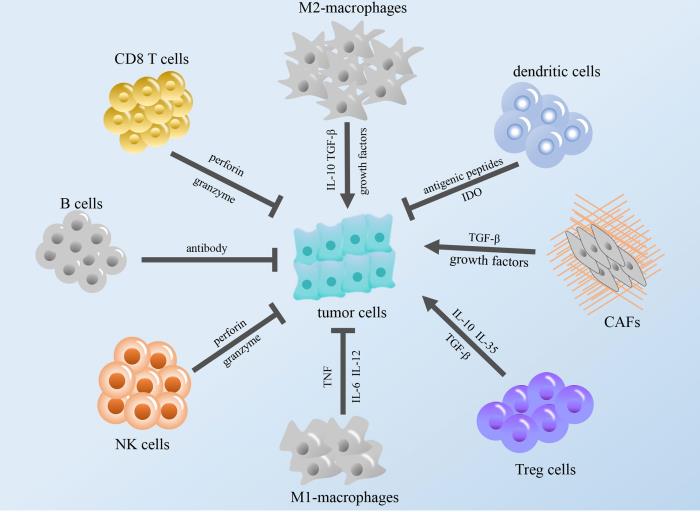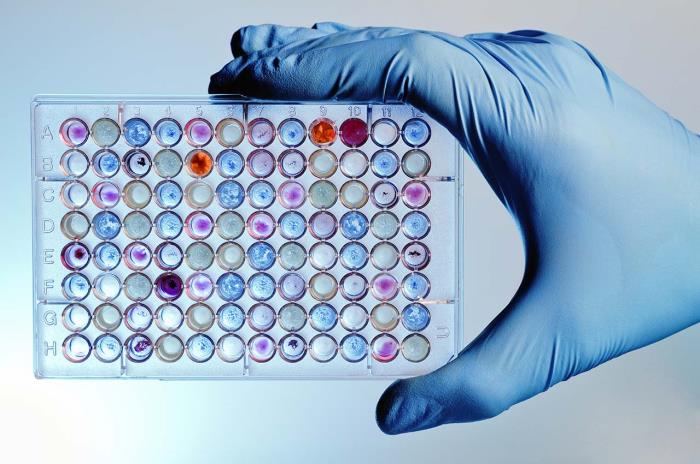Stomach cancer, also known as gastric cancer, primarily affects the lining of the stomach. It is a significant health concern, particularly in regions with high incidence rates, including parts of Asia. The disease often presents with vague symptoms, leading to late-stage diagnosis. Understanding the biology of stomach cancer is crucial, as it informs treatment decisions and patient management strategies.
Understanding the Types of Stomach Cancer
Stomach cancer can be classified into several types, the most common being adenocarcinoma, which originates in the glandular cells of the stomach lining. Other types include lymphoma, gastrointestinal stromal tumors (GISTs), and carcinoid tumors. Each type has distinct biological behaviors and treatment responses, necessitating a tailored approach to therapy.
What Are Targeted Therapies in Stomach Cancer?
Targeted therapies are innovative treatments designed to specifically attack cancer cells while minimizing damage to normal cells. These therapies focus on specific molecular targets associated with cancer progression. In stomach cancer, targeted therapies are an essential component of personalized medicine, enhancing treatment efficacy and improving patient outcomes.

Mechanisms of Action for Targeted Therapies
Targeted therapies work by interfering with specific molecular pathways that promote cancer cell growth and survival. For instance, therapies that inhibit vascular endothelial growth factor (VEGF) prevent tumor blood supply, while those targeting HER2 can block signals that lead to cancer cell proliferation. Understanding these mechanisms is vital for the effective application of targeted treatments.
Common Targeted Therapies for Stomach Cancer
Several targeted therapies have been approved for stomach cancer treatment. Trastuzumab is used for HER2-positive gastric cancers, while ramucirumab targets VEGF receptors to inhibit angiogenesis. Other agents, such as lapatinib and neratinib, are also being explored in clinical trials. Each therapy's selection depends on specific tumor characteristics and patient health.
Role of Biomarkers in Targeted Therapy Selection
Biomarkers play a crucial role in identifying patients who are likely to benefit from targeted therapies. Testing for HER2 overexpression, PD-L1 expression, and other genetic alterations can guide treatment decisions. This personalized approach ensures that patients receive the most effective therapies based on their tumor's unique profile, enhancing overall treatment outcomes.
Clinical Trials and Emerging Targeted Therapies
Ongoing clinical trials are essential for discovering new targeted therapies for stomach cancer. Research is focusing on novel agents that target genetic mutations such as PIK3CA and KRAS. These trials provide valuable insights into the potential benefits and risks of new treatments, paving the way for future advancements in stomach cancer care.
Combination Therapies: Enhancing Treatment Efficacy
Combination therapies, which include both targeted therapies and traditional treatments like chemotherapy, are being investigated to enhance treatment efficacy. For instance, combining trastuzumab with chemotherapy has shown improved outcomes in HER2-positive gastric cancer patients. This synergistic approach aims to maximize tumor response while minimizing resistance.

Managing Side Effects of Targeted Therapies
While targeted therapies are generally well-tolerated, they can cause side effects that may impact patient quality of life. Common side effects include fatigue, nausea, and skin rashes. It is crucial for healthcare providers to monitor these effects and manage them proactively to ensure patients remain compliant with their treatment regimens.
Patient Support and Education in Targeted Therapy
Patient education is vital in the context of targeted therapies for stomach cancer. Understanding the purpose, administration, and potential side effects of therapies empowers patients to participate actively in their treatment plans. Support groups and educational resources can provide additional assistance, fostering a sense of community among patients undergoing similar experiences.
Cost Considerations for Targeted Therapies
The cost of targeted therapies can be a significant factor in treatment decisions. Many targeted agents are expensive, and insurance coverage can vary. Patients should discuss financial concerns with their healthcare providers and explore options such as patient assistance programs or clinical trials that may offer subsidized treatment.
Future Directions in Targeted Therapy Research
Research in targeted therapies for stomach cancer is rapidly evolving. Future directions include the exploration of immunotherapy in combination with targeted agents, as well as the development of new agents targeting specific genetic mutations. Advances in genomic profiling will also facilitate more personalized treatment approaches, potentially improving patient outcomes.
Ethical Considerations in Targeted Therapy Trials
Ethical considerations are paramount in the conduct of clinical trials for targeted therapies. Informed consent, patient safety, and equitable access to innovative treatments must be prioritized. Researchers and clinicians must navigate these ethical challenges to ensure that the benefits of new therapies are accessible to all patients, regardless of socioeconomic status.

Global Perspectives on Targeted Therapies for Stomach Cancer
Globally, the approach to targeted therapies for stomach cancer varies significantly based on healthcare infrastructure and access to medications. In developed countries, targeted therapies are more readily available, while in developing regions, access may be limited. Understanding these disparities is crucial for global health initiatives aimed at improving stomach cancer outcomes.
Patient-Centric Care in Targeted Therapy Management
Adopting a patient-centric approach in managing targeted therapies is essential for optimizing treatment outcomes. This involves tailoring therapy plans to meet individual patient needs, preferences, and values. Engaging patients in shared decision-making fosters a collaborative environment that enhances adherence to treatment protocols and overall satisfaction with care.
Integrating Targeted Therapies into Standard Care Protocols
Integrating targeted therapies into standard care protocols for stomach cancer requires collaboration among healthcare providers. Multidisciplinary teams can develop comprehensive treatment plans that include targeted agents, traditional therapies, and supportive care. This integrated approach ensures that patients receive holistic and effective treatment tailored to their specific cancer type.
Rehabilitation and Physical Therapy After Stomach Cancer Surgery
Rehabilitation and physical therapy play a crucial role in helping stomach cancer patients regain strength and improve quality of life post-surgery.
Latest Advances in Stomach Cancer Treatment in India
The latest advances in stomach cancer treatment in India include personalized medicine, cutting-edge surgical techniques, and innovative therapies for improved patient outcomes.
Monitoring Treatment Response in Targeted Therapies
Monitoring treatment response is critical in managing patients undergoing targeted therapies for stomach cancer. Regular imaging studies, biomarker assessments, and clinical evaluations help determine the effectiveness of treatment. Adjustments to therapy may be necessary based on these assessments to optimize patient outcomes and manage disease progression effectively.
Best Stomach Cancer Treatment in India
The Best Stomach Cancer Treatment in India combines advanced therapies like surgery, chemotherapy, and targeted treatments to ensure optimal outcomes for patients battling stomach cancer.
Stomach Cancer Treatment Cost in India
The stomach cancer treatment cost in india is affordable and transparent, making world-class cancer care accessible to both domestic and international patients.
Best Stomach Cancer Specialists in India
The Best Stomach Cancer Specialists in India bring extensive expertise in oncology, providing tailored treatment plans and compassionate support throughout the patient’s journey.
FAQs About Targeted Therapies for Stomach Cancer
What are the main benefits of targeted therapies for stomach cancer?
Targeted therapies offer several benefits, including increased treatment efficacy, reduced side effects compared to traditional chemotherapy, and the ability to specifically attack cancer cells based on their unique characteristics. This personalized approach enhances the overall management of stomach cancer.
Are targeted therapies suitable for all stomach cancer patients?
No, targeted therapies are not suitable for all patients. Their effectiveness depends on the presence of specific biomarkers or genetic mutations within the tumor. Comprehensive testing is essential to determine the appropriateness of targeted therapies for individual patients.
How can patients access targeted therapies?
Patients can access targeted therapies through healthcare providers, clinical trials, or specialized cancer centers. Discussions with oncologists can provide insights into available treatment options and potential eligibility for clinical trials.
What should patients expect during treatment with targeted therapies?
Patients should expect regular monitoring for side effects and treatment efficacy. Oncologists will provide guidance on managing any adverse effects and adjusting treatment plans as needed to optimize outcomes.
Discover the Best Oncologists and Cancer Hospitals in India
When it comes to cancer treatment, finding the right specialist and hospital can make a significant difference in the outcome. In this blog, we have compiled a list of the top oncologists and cancer hospitals across major cities in India, ensuring that you have access to the best care available.
Top Oncologists in Major Cities
For those seeking expert oncologists, we have identified the best specialists in key cities:
Leading Cancer Hospitals
In addition to finding the right specialist, choosing the right hospital is crucial for comprehensive cancer care. Here are the top hospitals in major cities:
Get more indepth information on Cancer treatments and their costs
Conclusion
Finding the right oncologist and hospital is the first step in your cancer treatment journey. Explore the links above to learn more about the top specialists and hospitals in your area.